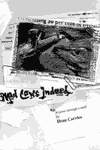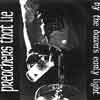George Orwell, �Homage to Catalonia�
You know how everybody likes to make jokes about how world leaders, particularly U.S. leaders, avoid service in the military for such-and-such reason? Most of them come from positions of privilege, getting deferments for Ivy League colleges that they didn�t have the GPAs for. Others get lame medical exemptions. All of it smacks of their fathers pulling strings.
Of course, most of the people currently in power come from the Vietnam generation, where hundreds of thousands of men of lesser privilege were forced to go, whether they liked it or not. But have you stopped to think about how that�s going to change in the next 15 years? There�s no draft, and our military is filled with people who can�t think of anything else to do. Military service is now more of a distraction for the wayward, hence the military's offers college scholarships, or job training, or some sort of macho self-confidence bullshit.
Military service used to be a right of passage. Now it�s for thugs and yahoos and yokels who like guns and are too dumb to read a book. There�s a reason military recruitment goes up whenever a movie like Top Gun comes out or when some planes commandeered by filthy foreigners fly into some buildings.
So it�s weird to read this book, which details Orwell going to Spain as a journalist in 1936, only to join the Spanish army to fight the Franco Fascists. What starts out as a journal detailing an uprising which Orwell thinks is right quickly deteriorates into the horrors of war, combined with a near-slapstick description of the woefully under-armed and undertrained leaders of the communist rebellion. For instance, if there is supposed to be no hierarchy, how can you expect soldiers to follow orders? (Answer: ask nicely, and offer to lead the charge.)
One thing is for certain: anybody who reads this book wouldn�t want to be within 300 miles of a military organization. Orwell, who can be harrowing enough in his fiction, comes off twice as brutal here, especially when you remember that what he describes here is real.
Orwell will probably forever be remembered by the masses for Animal Farm and 1984, but I�m finding his journalism work, detailed here and in Down and Out in Paris and London, is vastly superior. He puts you not only in the trenches, but also in the government offices; you read about both the privileged businessman and the lowly soldier about to get fragged; and you see the stupid masses whose loyalties flip and flip back, depending on who�s winning.
As for the question of the military, I�m afraid I don�t have any answers for that. I�m certainly glad I didn�t have to go, and that I�m too old to draft now. I would have certainly killed an officer or been killed by my fellow soldiers. But I am starting to think that people with political aspirations perhaps should have to serve as infantrymen (common infantrymen, no working for the National Guard or any of that shit) before being allowed to run for office. In some na�ve way, I�d like to think this might make them think twice before sending off hundreds of thousands to do their dirty work.
But at the same time, as I re-read that statement, I find I�m dissatisfied by it. So maybe one more point: Orwell, from his experience in fighting, formulated his distrust of both governments and armies. Yet he still fought, because he believed in the cause he was fighting for. When I see the stickers and shirts telling me to support our troops, or else, I take it as an automatic indicator that this meathead/ housewife/ redneck/ jingoistic bastard has no idea what the people in the military are fighting for.
And if it weren�t for the fact that I just paid $3,000 in dental work, I�d be the first one on my block to wear a shirt that said, �Fuck the Troops.�
And I really hate myself for using that as an excuse.

